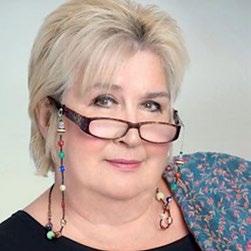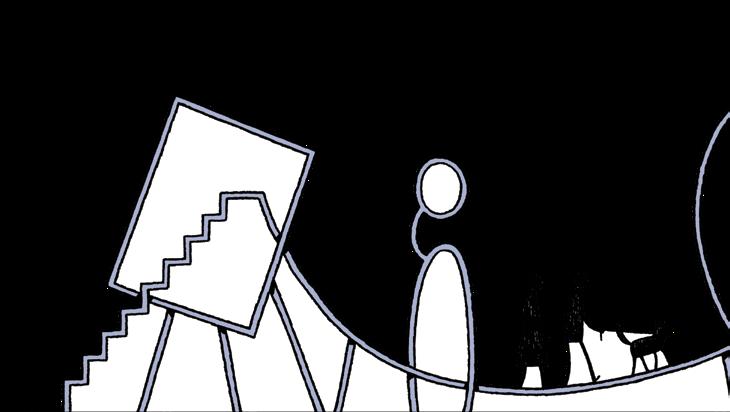Georgia Channon’s grandfather wrote horrible things in his diaries but she still wanted them to be published, warts and all
A full portion of Chips B
THE CHANNON ESTATE
oth my grandfathers had nicknames. My father’s father, Henry Channon, was called Chips. It is a mystery why he was given this nickname. Did he once live with a Mr Fish at Oxford? Or was he the first person to introduce potato chips or crisps to London? Who knows? My mother’s father, Richard Wyndham, was nicknamed Whips. Unfortunately, we do know why he was called that. He loved whipping ladies. However, according to his brother, Francis Wyndham, he always whipped the ladies gently, so as not to hurt them, Usually they enjoyed it, regularly returning for more. Richard ‘Whips’ Wyndham was a terrible father. He was a talented painter and writer and he travelled the globe, being both. He fought at Ypres in 1914 and never really recovered from it. After the war, even when painting or drinking in the Gargoyle Club, he always seemed restless, as if he was continually searching for or possibly running from
Paul Channon and mother, Honor, 1939 30 The Oldie September 2021
something. He died in 1948 in Jerusalem, where he was a war correspondent for the Times. He often wore Arab dress and was mistakenly shot dead, aged 52. He hardly knew his two children. He once chatted with one of them at a party without realising she was his daughter. His eldest child was the writer, Joan Wyndham. His younger daughter from a different marriage was my mother, Ingrid. My mother’s mother, a Norwegian model named Greta Wulfsberg, was an equally neglectful parent and Ingrid was brought up by her aunt, Violet Wyndham. Chips, in contrast, was totally devoted to my father, Paul Channon (1935-2007), later Conservative MP for Southend West for 38 years and Transport Secretary. He was devastated when, in June 1940, Paul was sent to America to escape the bombing in Britain. My father was four when he and Nanny crossed the Atlantic by boat to New York, where he stayed with the Astors. He told me that he was taken to the White House to visit President Roosevelt. He remembered being delighted because Nanny had to be frisked by security guards. He said that the President asked him if he could sing the national anthem and he sang ‘God Save the King’ and Roosevelt roared with laughter. Chips, meanwhile, missed my father dreadfully. It was in the early war years, recorded in the newly published Volume 2 of the diaries, that Chips and my grandmother, Honor Guinness, saw their relationship disintegrate. Honor was a strong-willed woman who loved sport and new, exciting projects. It is easy to see why she became bored by Chips’s cycle of drinks, dinners and weekends. She studied Greek at Oxford and, in 1958, she and her sisters
financed and oversaw the building of the Cipriani Hotel in Venice. She owned racehorses, helped design and build a small yacht and, in her early sixties, she bought the first plot of land on Mustique. She was brave and independent – but she was not maternal. Chips got custody and brought up my father. Publishing the unexpurgated edition of Chips’s diaries has been a fascinating but complicated project. Some of the diaries were written in spidery handwriting in hardback exercise books; some on flimsy foolscap paper. Some paragraphs were scribbled out by Chips’s boyfriend, Peter Coats. A number of the diaries were stolen and later found in a car-boot sale and sold back to my father. Chips’s writing needs hardly any correction. His grammar, spelling and punctuation are consistently good. It seems inevitable that he must have been blind drunk when he wrote some of it. But there is never much apparent difference between his drunk and his sober writing. The language doesn’t seem to change or get overblown when he writes after a long lunch or a big party. The original publication of the diaries was heavily redacted for many reasons. My father didn’t want to offend anyone who was still alive. This included Honor. The terrible break-up of their marriage is hardly referred to in the early edition, for obvious reasons. Honor was also concerned that my father’s political career might be damaged by some of the content. The writing concerning Chips’s sexuality and ‘marriage’ to Peter Coats was also severely cut and Chips’s pro-German views were toned down. For this latest publication, we handed editorial control to Simon Heffer, who






































